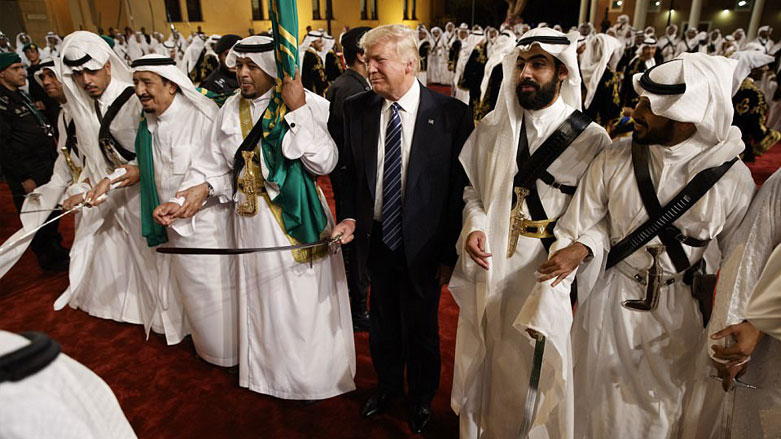White House hails Trump's Middle East Trip

WASHINGTON DC, United States (Kurdistan24) – White House Press Secretary, Sean Spicer, as well as Acting Assistant Secretary of State for Near Eastern Affairs, Stuart Jones, briefed reporters Tuesday on President Donald Trump’s first trip abroad as president.
The European part of Trump’s tour, which included a NATO summit and a summit of the G-7 group of industrialized states, generated tensions, above all with Germany. However, the Middle Eastern part of the trip, in which Trump stopped in Saudi Arabia and Israel, "went very well," according to US spokespersons.
Spicer hailed Trump’s speech to the Organization of Islamic States in Riyadh as “historic.” Some 55 countries attended the event, 33 of which were represented by heads of states.
The Muslim leaders heard Trump articulate the basis of his foreign policy—“principled realism”—and explain why “the Muslim world must take the lead in combatting radicalization,” as Spicer characterized Trump’s address.
Former CIA Director Jim Woolsey hailed Trump’s address as a “courageous speech,” Spicer said, while former House Speaker Newt Gingrich wrote that it had been a long time since there was “a comparably dramatic moment in the history of US foreign policy.”
Arab allies welcomed it as well.
“President al-Sisi of Egypt said President Trump is ‘a unique personality that is capable of doing the impossible,’” the White House spokesman asserted.
The Saudis have committed themselves to fighting Islamic extremism, including the establishment of a Global Center for Combatting Extremist Ideology which will monitor on-line extremism and engage in counter-messaging.
Of course, if the Saudis are truly going to clamp down on the export of Wahhabi ideology, it would mark a very significant contribution to the international fight against terrorism.
In addition, the Saudi-led Gulf Cooperation Council, which also includes Kuwait, Bahrain, the UAE, Qatar, and Oman, announced their determination to end terrorist financing from their countries.
There is also a large economic component to the reinvigoration of US-Saudi ties. It is consistent with Trump’s emphasis on burden-sharing among allies, strengthening the US economy, and creating jobs for US workers.
As Spicer explained, Trump’s visit to Riyadh brought “historic economic development deals” for the US, “totaling well over half a trillion dollars and the creation of tens of thousands of American jobs.”
Those deals include an immediate $110 billion Saudi investment, “which will grow to $350 billion over the next ten years in defense cooperation.” It will “further enable Muslim troops to take on a greater role” in fighting terrorism, Spicer said.
The entire package is to be institutionalized through a “Strategic Joint Consultative Group” which will meet at least once a year to “bring together all the elements of the US-Saudi bilateral relationship,” Jones explained.
From Riyadh, Trump flew to Israel.
Some years ago, the announcement of such extensive US arms deals with Saudi Arabia would have set off alarm bells there. But ties between Israel and Saudi Arabia have been warming since 2015, as the Washington Post noted.
US policy also now aims at establishing a common front against Iran, which both Riyadh and Jerusalem regard as a major threat.
Trump was welcomed in Israel “with incredible warmth,” Spicer affirmed. He became the first sitting US president to visit the Western Wall, the holiest site, where Jews pray. As it is located in East Jerusalem, the US does not officially recognize it as part of Israel.
Israeli Prime Minister Benjamin Netanyahu appears to have great confidence in Trump. Trump has announced that he will make a renewed push for peace between Israel and the Palestinians, and he met with Palestinian Authority President Mahmoud Abbas on this trip.
Not so long ago, such actions would have caused significant concern within a Likud government. Instead, however, Netanyahu proclaimed, “For the first time in my life, I see a real hope for change.”
Editing by G.H. Renaud
